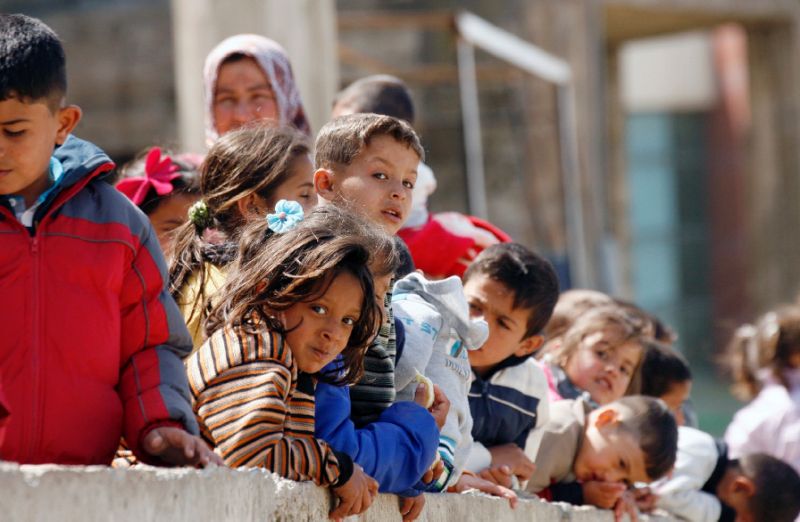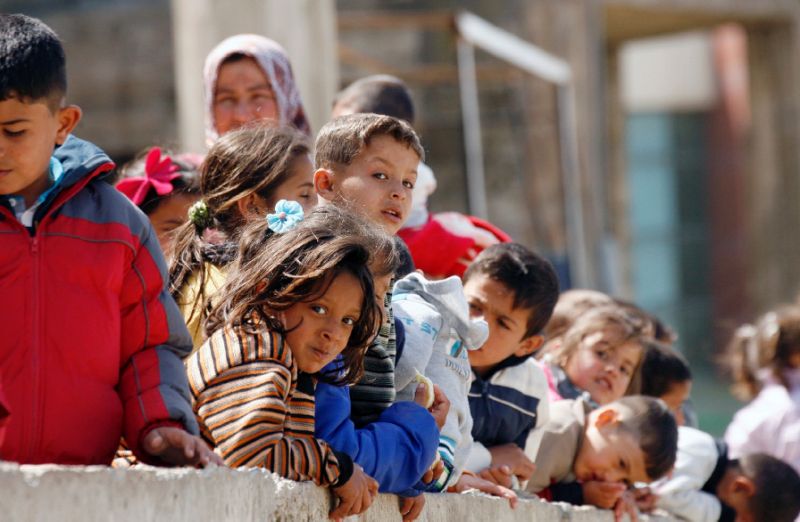Syrian refugee finds independence in Lebanon with hairdryer in hand

Syrian refugee children. File Photo.

Aya is one of more than 1,200 female refugees from Syria that have been trained through an informal beauty school in Lebanon, learning blow-drying techniques, basic cutting, hair dying, make-up and eyebrow threading skills.
“I hold my head high that I know this,” said Aya, who did not want to give her real name for security reasons.
Lebanon hosts more than 1 million registered Syrian refugees, a quarter of its population. Many have no legal right to work, and families are forced to find other ways to pay for food and shelter.
Aya counts herself lucky, having escaped the Syrian war and finding a new home and – eventually – informal work after moving in 2013 to Tyre, a coastal city in southern Lebanon, a region that hosts more than 117,000 Syrian refugees.
HALF WAY TO HER DREAM
Aya has been running a beauty salon out of her home for the past six months after completing a course at the beauty school, set up by aid agency the Norwegian Refugee Council (NRC).
It is a dream come true for the 27-year-old mother of four.
“I feel (that) hair is like a painting you are drawing … You have to determine what looks best on her, what works for her face,” she told the Thomson Reuters Foundation.
After moving to Lebanon Aya wanted to prove herself and show women are not just there for cooking and taking care of children. She longed to learn how to do hair.
“I feel like I am living my dream, but half of my dream. My bigger dream is that I open a salon,” said Aya with a smile on her face.
Her beauty salon is a modest set-up, with just a plastic chair that she places in the middle of her living room armed with her tools by her side – hair clips, a round brush, comb, and her trusted hairdryer.
She usually gets two to three customers a week from the neighborhood, including some family and friends.
Even though she does not get much money from her customers, she is confident her skills will support her.
“I am okay with the little I get … what’s important to me is it’s what I love to do,” said Aya, who used to work as a seamstress near the Syrian capital Damascus, a job she did not enjoy, but the work helped her family.
The training also has given her a sense of independence.
“If God forbid my husband dies, who will take care of me? No, I will have a job to benefit myself and my kids, and I wouldn’t rely on anyone,” said Aya.
The beauty school is part of the NRC’s Youth Education Pack, (YEP), a program set up currently in 11 centers across Lebanon to help Syrian and Palestinian refugees.
“The objective of this program is to provide (them) with the skills they need to use them in the future … whether in Lebanon or when the come back to Syria, or maybe if they want to travel outside the Middle East,” said Aline Sfeir, education project manager at the NRC.
The free program includes communication skills, problem-solving skills and English training as well as beauty skills, barbering for men, basic mobile phone maintenance and sewing and tailoring.
Local experts teach the refugees for around two to three months. When they complete their training they get a certificate and a blow-dryer or hair straightener.
“When they learn these skills they don’t need a big investment in money to start working in it,” said Sfeir.
Aya is also proud that as refugee she pushed herself to learn new skills even though her circumstances are difficult.
“I want to show that here in Lebanon yes we migrated, but we are making our dreams real although it’s little,” said Aya.
(Thomson Reuters Foundation)
